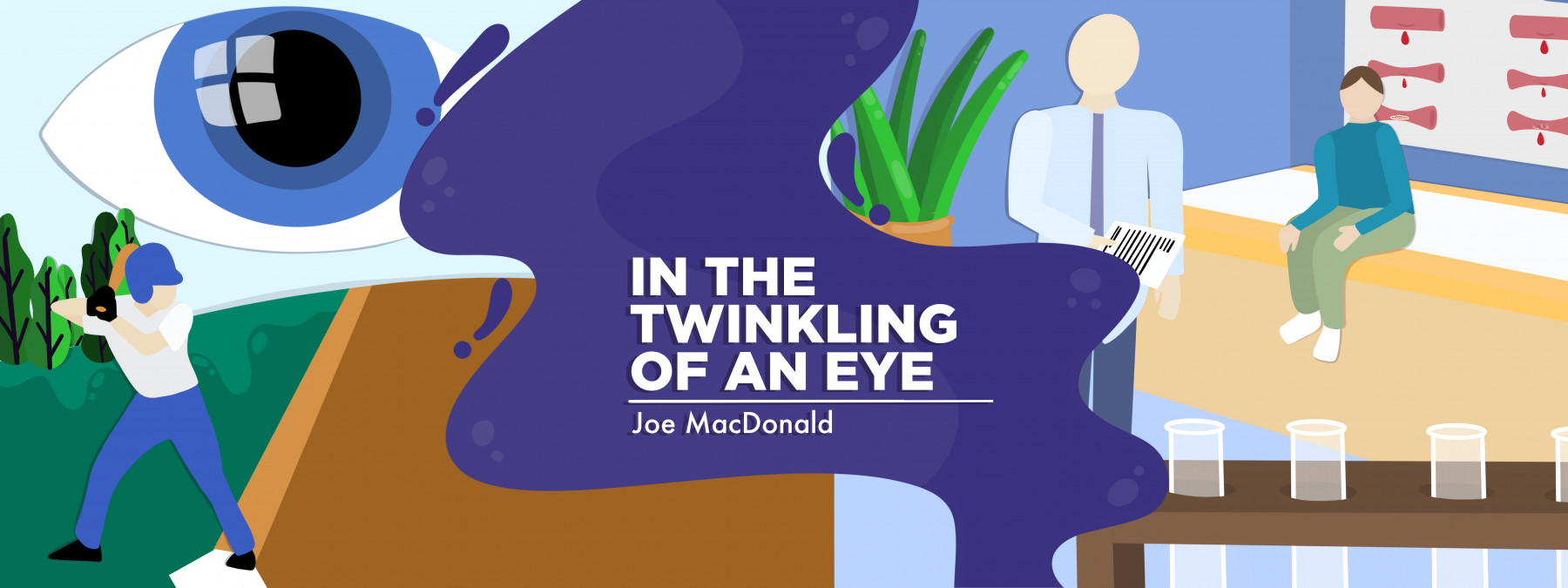Witnessing My Son’s Strength at a Marching Band Competition
How music changed my perspective on my son's use of a cane

My son Caeleb participated in a marching band competition this past Saturday. He plays the keyboard in the pit so that he doesn’t have to move around on the field, which would cause intense pain.
Many years of internal bleeding left no cartilage in my son’s damaged right ankle and knee joints. Although his principal instrument is the trumpet, he cannot keep up with the fast-paced programs on the football field. As a result of complications related to his hemophilia, he must often walk with the assistance of a cane or walker to have the support he needs.
On the day of the festival, I dropped Caeleb off at school and spoke with one of his band directors, explaining his situation. She affirmed that my son has done a great job and plays an essential role in the music program. I thanked her for her consideration and said I looked forward to hearing the band. Finally, I hugged my boy and told him I’d catch up with him after the competition.
My wife and I took our seats in the stands in front of the 50-yard line. Caeleb’s keyboard was right in front of us. As the band took their place on the field, I saw my boy in the thick of everything. My heart sank as I watched him walk with a cane to take his place in the pit. He moved much slower than the other members and took time to center himself. Part of me wanted to stand up and scream, “This is not fair! Why does my son have to struggle so much?”
As a caregiver, I find that there are moments when fear and sadness overwhelm me. In my son’s case, unexpected complications resulting from hemophilia prevent him from enjoying the quality of life that most people his age experience. It sometimes feels like Caeleb is a child of the 1950s, as he struggles like someone who lived a generation or two ago. We still don’t have the resources necessary to help him live a better life. I often wonder what happens next.
I looked at him on the field and felt anger rise in me due to my fear and anxiety. I thought, “I cannot protect him from the ravages of his disease. What do I do to help him?”
Helplessness isn’t an emotion with which I enjoy a healthy relationship. Admitting that I’m powerless to help my son isn’t an easy feat. I cannot remember a time when I raised a white flag and admitted defeat in the face of his struggles. Instead, I fight until my very last breath.
As I sat by my wife, ready to hear the music, I watched my son play the first chords on the keyboard. The sounds of his notes fell on me like a refreshing, soft rain. For a moment, my son and I spoke the same language, that of a musician.
And then I realized that hemophilia no longer captured my attention. Instead, the music lifted me from a space of sadness into a world of beauty, reminding me that while my son’s bleeding disorder may make its presence known, it doesn’t define him. He is more than a diagnosis.
I watched as the band left the field and my son, using his cane, helped gather music stands and assorted things. I couldn’t help but feel a sense of pride. Even though he needed a cane to provide support for his right leg, my son still participated in the event. He didn’t let his bleeding disorder prevent him from doing his job. Caeleb, like many times before, faced adversity head-on and won the battle.
I learned that my son is an amazing young man, often showing strength that seems almost supernatural. He refuses to allow hemophilia to define him, doing everything in his power to maintain an active life filled with all the teenage angst one could possess.
Caeleb is a formidable force, and I’m proud of his many accomplishments. He constantly reminds me that he’s fearless and extraordinary.
Note: Hemophilia News Today is strictly a news and information website about the disease. It does not provide medical advice, diagnosis, or treatment. This content is not intended to be a substitute for professional medical advice, diagnosis, or treatment. Always seek the advice of your physician or another qualified health provider with any questions you may have regarding a medical condition. Never disregard professional medical advice or delay in seeking it because of something you have read on this website. The opinions expressed in this column are not those of Hemophilia News Today or its parent company, Bionews, and are intended to spark discussion about issues pertaining to hemophilia.






Leave a comment
Fill in the required fields to post. Your email address will not be published.